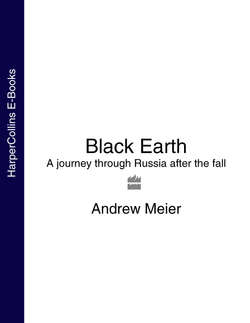Читать книгу Black Earth: A journey through Russia after the fall - Andrew Meier - Страница 20
ELEVEN
ОглавлениеHOW DO YOU EXPLAIN a state in decay? How do you explain a country where the death of an ideology has displaced millions? How do you explain a government that announces a 50 percent increase in defense spending when the poverty line cuts through a third of its households and its poor souls face new epidemics of HIV and TB, suicide and drug abuse and, most pervasive of all, the old scourge of alcoholism? Where people do not fear the future, they fear – with good reason – the past.
In Russia nothing political stays unchanged for long. Kremlin intrigues, however transfixing they may be, do not suffice to draw a faithful portrait of Russia a decade after the Soviet fall. Russia of course has changed. But for far too many of its inhabitants it remains an Old Testament land, a place of plagues and floods, of locusts and blizzards and power outages without end. I knew I would have to go far from Moscow, as far as the points of the compass could lead me, to chart a deep map of the country, to learn how Russians not only survive but struggle to find meaning in the ruins of empire.
“The death of the contemporary forms of social order ought to gladden rather than trouble the soul,” writes Aleksandr Herzen, the Russian political philosopher, in From the Other Shore. “But what is frightening is that the departing world leaves behind it not an heir, but a pregnant widow.” Herzen was writing of the European revolutions of 1848, but his words echo across Russia today. “Between the death of one and the birth of the other,” he concludes, “much water will flow, a long night of chaos and desolation will pass.”
I stared at the huge map on our wall at home and plotted my route. I would travel to the country’s extremes, to the corners where no “Kremlin insiders” dwelt and few oligarchs set foot. I wanted to go to the Russian lands where no one had dined with Berezovsky or vied for an audience with Luzhkov, where few cared about the Byzantine struggles that entranced Moscow and fewer still fretted about the price of Siberian crude on the world exchange. I wanted to go to the regions where Russians had seen little of the rewards of the new era but felt much of its pain. I wanted to listen to the land’s survivors and survivalists, to those who lived in its far-flung corners without the slightest expectation that anything good should ever come to a people who deserved so much better.
